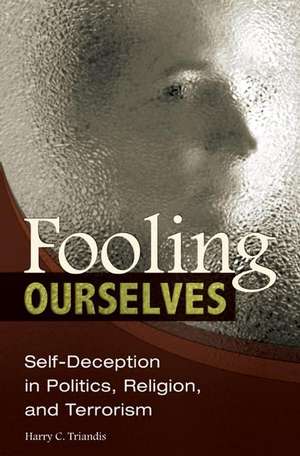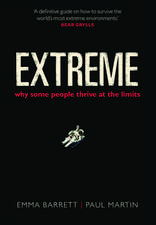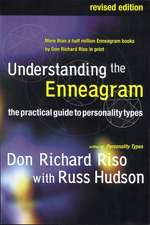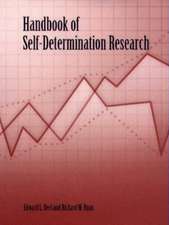Fooling Ourselves: Self-Deception in Politics, Religion, and Terrorism: International Contributions in Psychology
Autor Harry C. Triandisen Limba Engleză Hardback – 29 dec 2008 – vârsta până la 17 ani
Din seria International Contributions in Psychology
- 28%
 Preț: 497.64 lei
Preț: 497.64 lei - 27%
 Preț: 441.29 lei
Preț: 441.29 lei - 28%
 Preț: 460.60 lei
Preț: 460.60 lei - 28%
 Preț: 375.31 lei
Preț: 375.31 lei - 38%
 Preț: 346.50 lei
Preț: 346.50 lei - 28%
 Preț: 460.51 lei
Preț: 460.51 lei - 24%
 Preț: 364.22 lei
Preț: 364.22 lei - 28%
 Preț: 344.22 lei
Preț: 344.22 lei - 27%
 Preț: 438.93 lei
Preț: 438.93 lei - 27%
 Preț: 438.24 lei
Preț: 438.24 lei - 28%
 Preț: 435.88 lei
Preț: 435.88 lei - 28%
 Preț: 434.61 lei
Preț: 434.61 lei - 24%
 Preț: 459.31 lei
Preț: 459.31 lei - 22%
 Preț: 471.24 lei
Preț: 471.24 lei - 28%
 Preț: 344.22 lei
Preț: 344.22 lei - 27%
 Preț: 345.67 lei
Preț: 345.67 lei - 18%
 Preț: 308.13 lei
Preț: 308.13 lei - 28%
 Preț: 436.15 lei
Preț: 436.15 lei - 30%
 Preț: 512.04 lei
Preț: 512.04 lei - 35%
 Preț: 463.38 lei
Preț: 463.38 lei - 24%
 Preț: 464.13 lei
Preț: 464.13 lei - 27%
 Preț: 438.59 lei
Preț: 438.59 lei - 27%
 Preț: 464.48 lei
Preț: 464.48 lei - 38%
 Preț: 345.15 lei
Preț: 345.15 lei - 27%
 Preț: 438.76 lei
Preț: 438.76 lei - 28%
 Preț: 437.47 lei
Preț: 437.47 lei - 38%
 Preț: 437.47 lei
Preț: 437.47 lei - 38%
 Preț: 345.30 lei
Preț: 345.30 lei - 35%
 Preț: 363.73 lei
Preț: 363.73 lei - 27%
 Preț: 438.33 lei
Preț: 438.33 lei - 28%
 Preț: 437.57 lei
Preț: 437.57 lei - 24%
 Preț: 458.91 lei
Preț: 458.91 lei - 33%
 Preț: 174.88 lei
Preț: 174.88 lei - 27%
 Preț: 364.06 lei
Preț: 364.06 lei - 17%
 Preț: 289.84 lei
Preț: 289.84 lei
Preț: 356.95 lei
Preț vechi: 415.82 lei
-14% Nou
Puncte Express: 535
Preț estimativ în valută:
68.32€ • 74.24$ • 57.43£
68.32€ • 74.24$ • 57.43£
Carte tipărită la comandă
Livrare economică 21 aprilie-05 mai
Preluare comenzi: 021 569.72.76
Specificații
ISBN-13: 9780313364389
ISBN-10: 0313364389
Pagini: 276
Dimensiuni: 156 x 235 x 28 mm
Greutate: 0.57 kg
Editura: Bloomsbury Publishing
Colecția Praeger
Seria International Contributions in Psychology
Locul publicării:New York, United States
ISBN-10: 0313364389
Pagini: 276
Dimensiuni: 156 x 235 x 28 mm
Greutate: 0.57 kg
Editura: Bloomsbury Publishing
Colecția Praeger
Seria International Contributions in Psychology
Locul publicării:New York, United States
Notă biografică
Harry C. Triandis is Professor Emeritus of Psychology at the University of Illinois and a Fellow of three divisions of the American Psychological Association. His awards include APA's Distinguished International Psychologist of the Year, Distinguished Lecturer of the Year, and the award for Distinguished Contributions to International Psychology. He also earned the American Psychological Society's prestigious James M. Cattell Award. Triandis is a former Guggenheim Fellow, Ford Foundation Faculty Fellow, Fellow of the American Association for the Advancement of Science, and Fellow of the International Association of Cross-Cultural Psychology. He also served as a Distinguished Fulbright Professor and as President for the Society for the Psychological Study of Social Issues. He has authored seven books, including Culture and Social Behavior, and edited the six-volume Handbook of Cross-Cultural Psychology.
Cuprins
PREFACE1. HOW CAN WE AVOID FOOLING OURSELVES2. INFORMATION PROCESSING3. FOOLING OURSELVES ACROSS CULTURES4. FOOLING OURSELVES IN POLITICS5. FOOLING OURSELVES IN RELIGION6. FOOLING OURSELVES IN TERRORISM7. WHAT CAN WE DO?REFERENCES
Recenzii
A respected, internationally known expert on cross-cultural issues in psychology, Triandis (emer., Univ. of Illinois)offers here what is perhaps his most important piece of work. . . . Required reading for all concerned citizens. Summing Up: Highly recommended.
After first seeking to demonstrate the widespread nature of self-deception and its harmful effects on well-being, hediscusses cultural similarities and differences of individualist and collective self-deception, the ways that self-deception leads to poor information processing in politics, the self- deception of religion and the paradoxical human need for spirituality, the kinds of self- deception among terrorists, and means to decrease self-deception.
After first seeking to demonstrate the widespread nature of self-deception and its harmful effects on well-being, hediscusses cultural similarities and differences of individualist and collective self-deception, the ways that self-deception leads to poor information processing in politics, the self- deception of religion and the paradoxical human need for spirituality, the kinds of self- deception among terrorists, and means to decrease self-deception.













